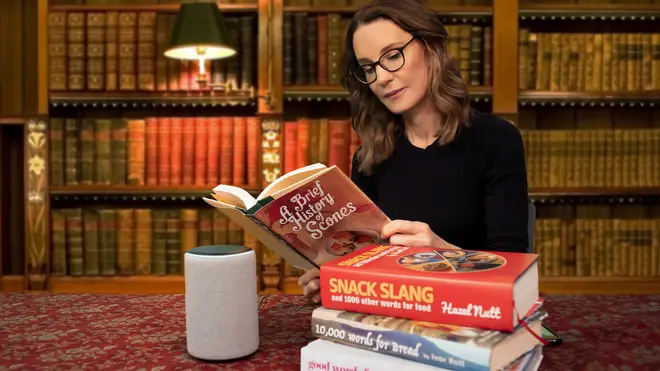
Nick Abbot 10pm - 1am
1 September 2020, 16:14

The language expert has helped with a scheme to improve the virtual assistant’s recognition of regional words and phrases from across the UK.
Amazon’s Alexa can now better understand UK regional dialects after being trained in local phrases and language by expert Susie Dent.
The tech firm has worked with the Countdown star to expand Alexa’s vocabulary, introducing the virtual assistant to hundreds of new regional words.
As a result, Amazon says the AI helper is now able to understand a range of regional ways of saying hello, as well as different regional names for dinner, a bread roll, sandwiches, mum and dad, woodlice and children, among others.
“Nowhere is the diversity of English vocabulary more apparent than in Britain. Our local languages are constantly evolving and changing,” Dent said.
“It is virtually impossible for people to learn every single phrase and utterance, but with technology getting smarter all the time, perhaps one day assistants like Alexa will understand everything from ‘dabberlick’ (tall and skinny) to ‘crumpsy’ (grumpy).
“In the meantime, I’m delighted to teach Alexa some new words and encourage everyone to converse more with each other, and with Alexa, so we can all learn the glorious quirks of British language.”
As part of the ongoing development of Alexa, Amazon uses language experts at its Cambridge Development Centre to train the assistant on the variations of British speech, including the rolling “R” in Scottish accents to the use of long vowels in the south of England.
Dennis Stansbury, Alexa UK country manager, said continually improving the software’s understanding of language was vital for making the user experience the same for everyone.
“Unlike us, Alexa cannot feign understanding through nodding, so in the instance Alexa mishears a word or question, the team have worked hard on ways to get better at understanding these – like Alexa asking follow-up questions to clarify what you might mean,” he said.
“The goal is for Alexa to work equally well for every customer, and at Amazon we’re always working to improve.
“On this project, Susie Dent, a top lexicographer, has joined with Alexa to highlight the complexity of the British language and bolster Alexa’s vocabulary with uniquely British phrases and words.”
According to Amazon Alexa research, more than a third of people (34%) admitted they had changed the way they speak in order to be understood, while 18% said they were too embarrassed to speak up when they heard a regional word or phrase they did not understand.